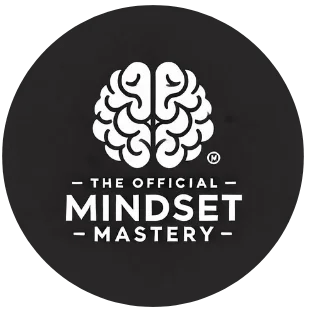Living in the present moment through mindfulness can improve your mental and emotional health. Incorporating mindfulness into your daily life can help you reduce stress, increase focus, and live a more meaningful life. You don’t need hours of meditation or mindfulness classes to make this happen. Small changes to your daily life can create lasting changes. Here’s how to practice mindfulness every day.
Mindful Morning Ritual
Start your mindfulness practice in the morning. Starting your day with a purpose can help you calm down and prepare yourself to deal with obstacles. Before you begin your daily ritual, sit quietly and breathe. Feel your breath entering and leaving your body. You can do this mindfulness exercise in bed or after brushing your teeth. According to Psychology Today, morning meditation can improve your brain’s clarity and focus.
Eat Mindfully: Savor Every Bite
Eating is something we do every day, often quickly or absently. Every meal can be eaten mindfully and with the senses. Start by paying attention to the color, texture, and smell of the food. Take your time and savor the taste and feel of each bite. Improves digestion and promotes a balanced relationship with food. According to Harvard Health, mindful eating can minimize overeating and promote healthier meal choices by increasing awareness of your body’s hunger and fullness signals.
Mindful Commuting
Your commute—whether by car, train, or on foot—is an opportunity to practice mindfulness. Instead of worrying about the day ahead, focus on your surroundings. Enjoy the sights, sounds, and smells. Think about your grip on the steering wheel or the sound of your footsteps. The New York Times reports that mindful commuting can reduce stress, create a relaxing mental space, and contribute to work-life balance.
Mindful Working: A Breath of Fresh Air
Work can be stressful, but mindfulness can improve focus and reduce anxiety. Take a moment to breathe mindfully at work. Close your eyes, breathe deeply, and focus on the rhythm and sensation of your breathing. A simple exercise can help you stay grounded and manage work stress. Forbes reports that mindfulness can improve productivity, decision-making, and morale.
Mindful Exercise
Daily physical activity can also be a mindfulness exercise. Whether you enjoy yoga, walking, or running, pay attention to your body as you exercise. With every step or stretch, be mindful of your muscles, breathing, and body movement. This amplifies the physical effects of your workout and helps you connect with your body. According to Mindful.org, mindfulness exercises like yoga and tai chi can reduce stress and improve mental clarity.
Do Housework Mindfully Every Day
Even household chores like washing dishes or cleaning can be mindfulness exercises. Slow down and focus on the activity, don’t rush. Feel the warm water on your hands as you wash dishes or dust; notice the texture. Being present in these moments can bring calmness and thoughtfulness to your daily tasks. Real Simple believes that practicing mindfulness while doing household chores can reduce stress and increase feelings of contentment and calm.
Listen Well: Join the Conversation
In our busy lives, it’s easy to let distractions derail a conversation. Give your friend, family member, or coworker your full attention while you listen. Put down your phone, make eye contact, and focus on your words and feelings. This activity strengthens relationships and promotes social presence. The Perfection Science Center says that mindful listening can increase empathy, deepen connections, and make interactions more meaningful.
Unwind with Mindfulness in the Evening
Relax and meditate with a nightly ritual. Make time for mindfulness meditation or breathing before bed. Reflect on your day without judgment and let go of any stress or anxiety. This technology can improve sleep, help you manage your emotions, and clear your mind for the next day. According to the Sleep Foundation, mindfulness meditation before bed can improve sleep quality, alleviate insomnia, and rejuvenate you.
Mindful Gratitude: A Good Way to End the Day
Say “thank you” to yourself for a moment before going to bed. Think about the good things that happened today, no matter how small, and be thankful for them. This easy activity can help you change your mind from stress or bad things to good things and being happy. The Greater Good Science Centre says that being grateful on a daily basis can improve your mental health, make you happier, and make you stronger. Being mindful and thankful at the end of the day can help you have a more peaceful and happy attitude the next day.
List of References
Science of Mind. (2024). Why a mindful morning routine is good for you.
Harvard Health. Why mindful eating can help you eat better.
The New York Times. (2024). How to Be Mindful on the Go: Tips for Your Trip.
Forbes. (2024). Being mindful at work can help you be more productive and less stressed.
Use mindful.org. (2024). Moving with awareness: how yoga and tai chi can help you deal with stress.
Simple as that. (2024). Using mindfulness to change everyday tasks.
Science Centre for Greater Good. (2024). How to Listen With Intent in a Relationship.
The Sleep Foundation. (1924). How mindfulness meditation can help you sleep better.
The Cut. (2024). Mindful self-care is the best way to put your mind and body back to full power.





